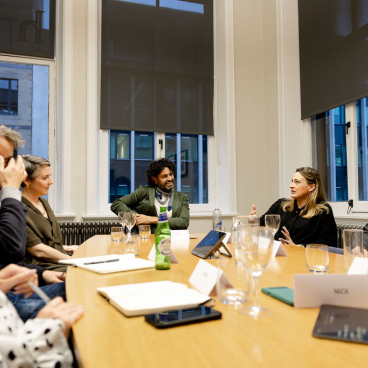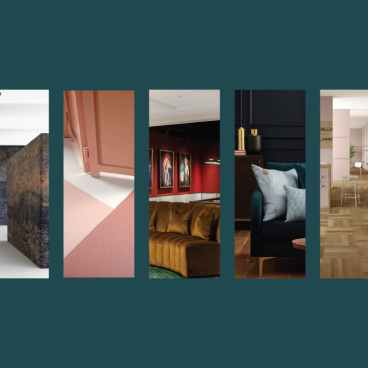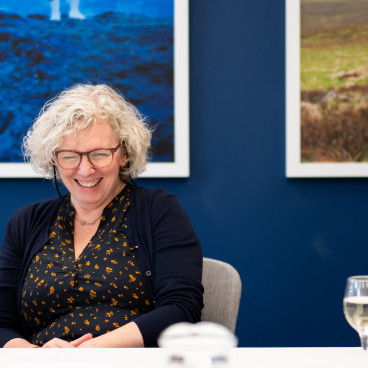Material Source Studio Presents: Glasgow Property Outlook - The good, the bad & the future.
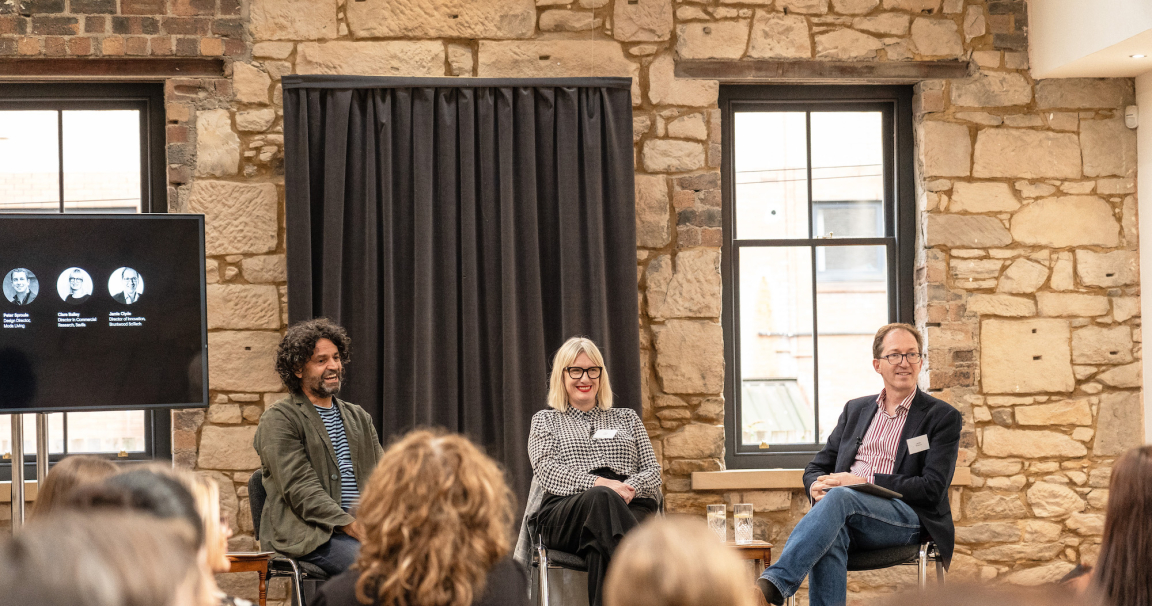
Credit: Tim Ainsworth
For our second Glasgow-based Material Source Studio Presents seminar, we turned our attention to the city that's soon to be home to Material Source Studio Scotland, inviting a duo of well placed panellists to discuss its property outlook, with a focus on the good, the bad and the future.
Glasgow has been cited as a city with much potential. Research published by Savills earlier this year, forecasted that investment in commercial property in Scotland will, in 2023, grow - surpassing the £2.39billion that traded last year. And in a spotlight report on Glasgow, it was concluded that "expanding skills and talent base is future-proofing the local economy and shaping new development in the city."
Discussing the city's property outlook in more detail were our panellists Clare Bailey, director in commercial research, Savills, and Jamie Clyde, director of innovation services, Bruntwood SciTech, in conversation with our host, Material Source Studio director, David Smalley. To kick off, he asked: "Why are people investing in Glasgow?"
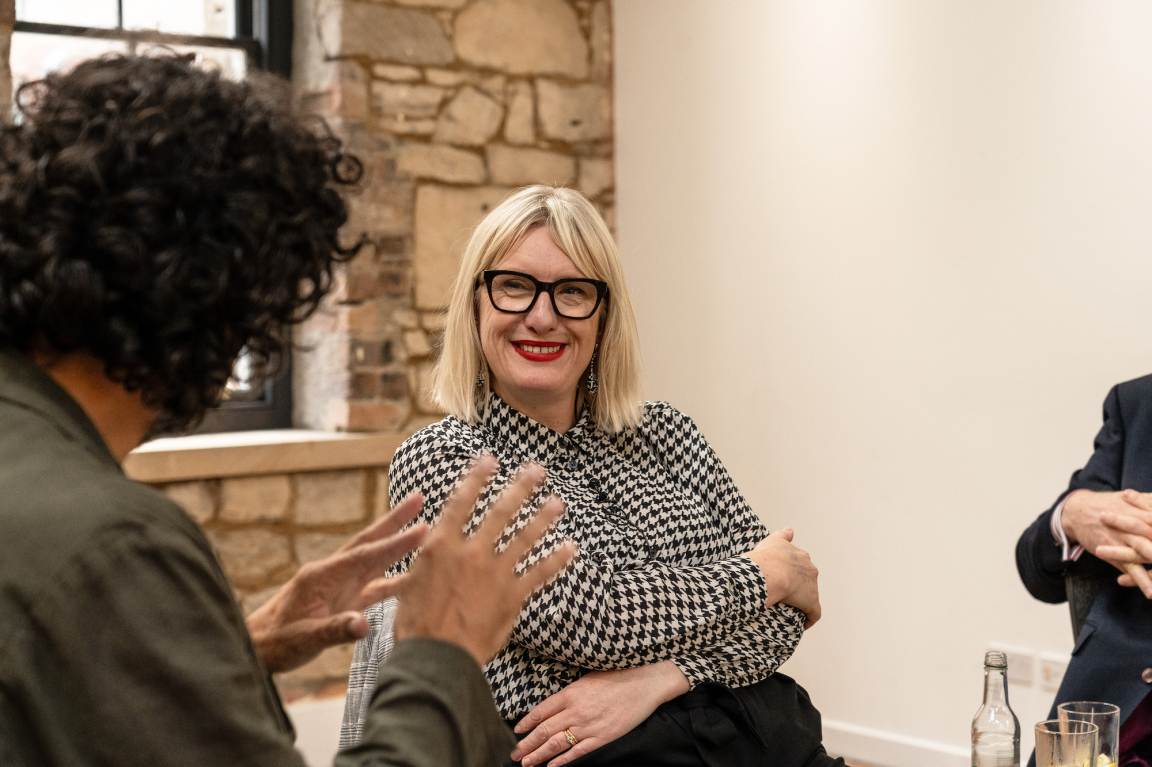
Credit: Tim Ainsworth
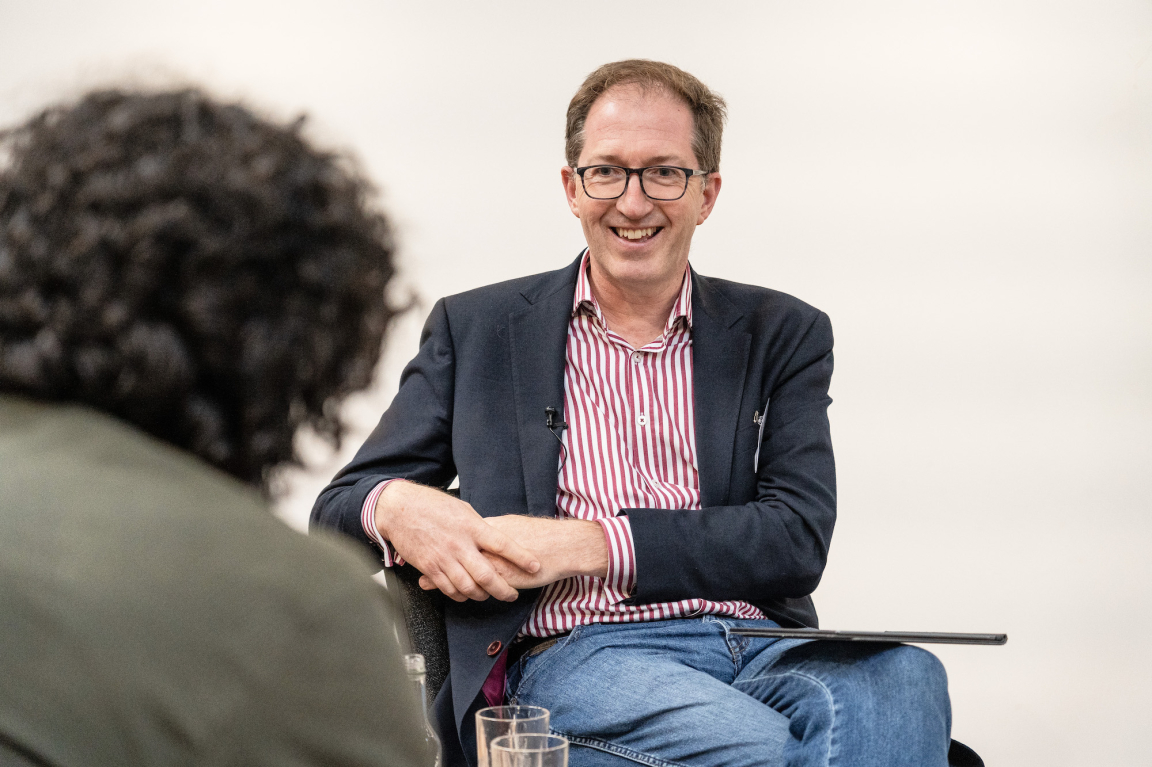
Credit: Tim Ainsworth
"For me, it's all about the people - the people make Glasgow", replied Clare. "It's talent, and it's culture. Banksy having his first exhibition here in 14 years represents the edginess, the vibe, and it makes me want to be here. Plus, everyone's really friendly! From an investor perspective, it's office space, but there's currently not enough of it. Something like The Met Tower is really needed. With the public and private sectors working together, they can make something great. There's already the culture to attract in talent to the city, and you've got thousands of graduates coming from the local universities every year, with a 41% retention rate, so it's then attracting the occupiers. It's almost a blank canvas."
"So, do you think Glasgow has a bit of catching up to do, then?" asked David. "Yes, I think so", answered Clare, "the stats are saying there's real growth potential in the tech, science and healthcare sectors, but it's having the space to actually keep these companies here."
Culture is the foundation of Glasgow - Clare
Continuing on this topic, Jamie added: "When it came to us investing in Glasgow, we weren't specifically looking here, but The Met Tower came up as an opportunity, and we went for it. The reasons we did are, firstly, looking at the asset itself - it's an iconic building, right in the city centre, and there is the opportunity to create scale - our plan is to build another tower behind The Met Tower for small and large businesses alike, that equally want to be a part of the community. There's nothing quite like this in Glasgow currently.
"Secondly, it was the market and the tech community - as Clare said - there are several other tech businesses in the cluster. About a third of the jobs in the city are tech-related in some way or other, and Glasgow is one of the top tech destinations in the UK. Interestingly, in the last year, while the investment cycle has turned, we've seen a real pull-back in post-Covid exuberance generally, but in Glasgow, there's been an 8% growth in the tech sector. Compare that with Cambridge - the centre of science - and in that same period, investment has dropped by 60%.
"So in summary, Glasgow has a really lively tech community, and a maturing ecosystem. In the meetings we've had, the same people would crop up, and we didn't have that in other cities. And that was across public sector, the academic and corporate communities. There was a clear strength of support for all the businesses within it. This showed us that the infrastructure around these clusters is strong, and very committed."
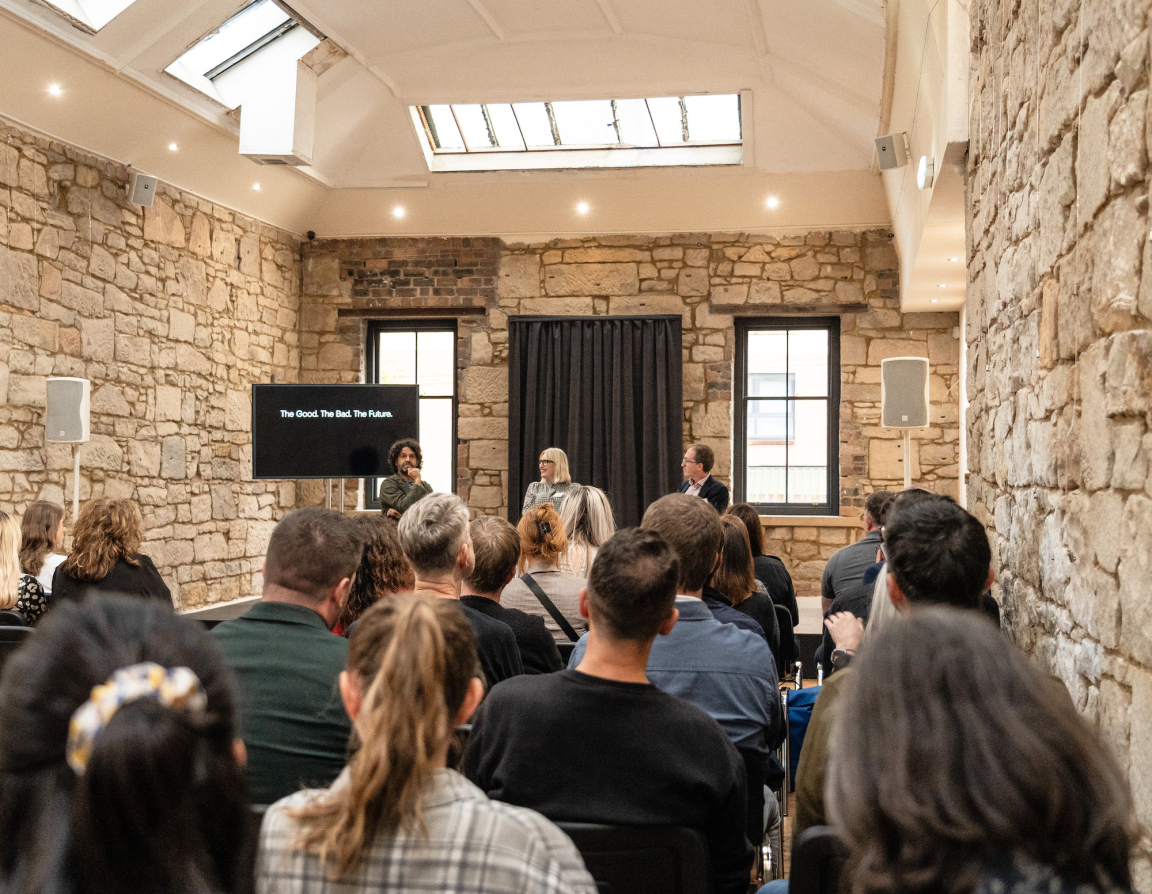
Credit: Tim Ainsworth
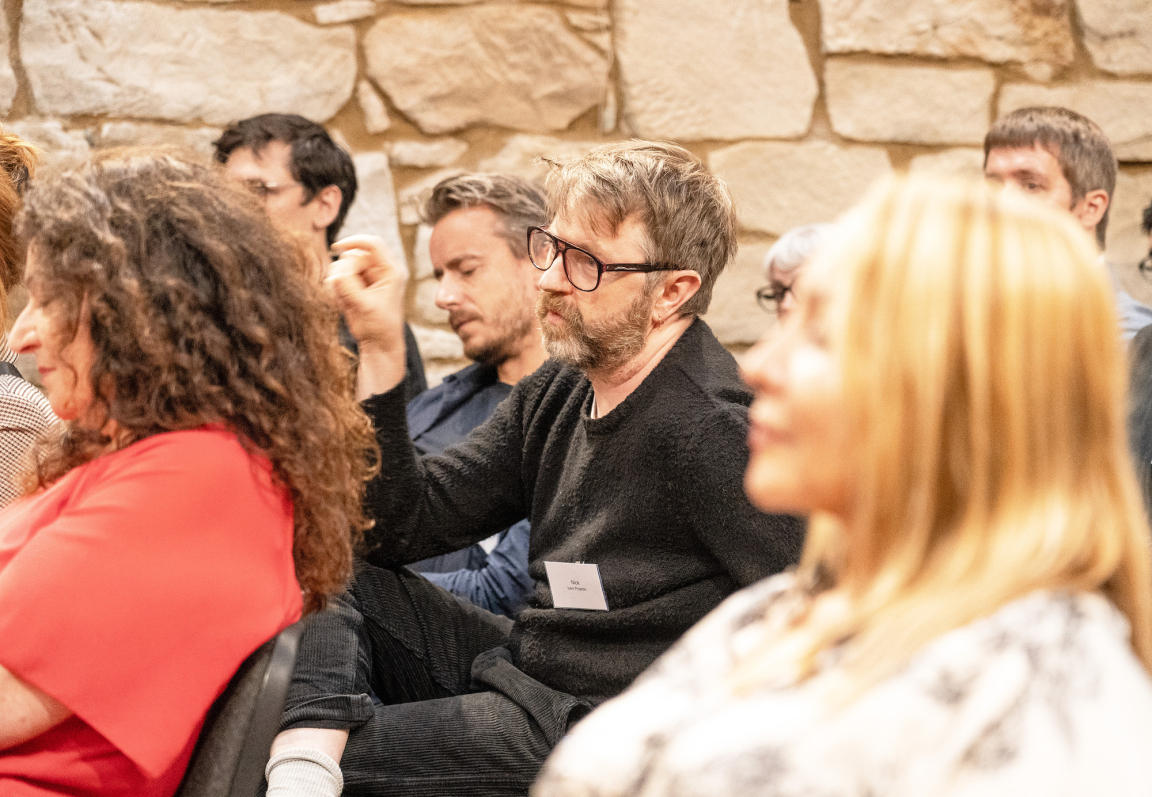
Credit: Tim Ainsworth
A question from the audience guided the conversation to the 'S' of 'ESG', with Jamie asked how Bruntwood plans to engage The Met Tower's local neighbourhoods? "Engagement with the local communities is a really vital part of the success of any tech hub/innovation district for a variety of different reasons", Jamie responded. "From a landlord perspective, we want to create a place where businesses thrive. And to thrive, they need talent. We have a massive shortage of talent - not just in Glasgow, but across the UK.
"There is currently a gap of £50billion, which is a loss of opportunity because we don't have enough digital skills. So we can't just rely on traditional ways of filling digital spaces. When you talk to the people responsible for that task within businesses, they can't get the skills that they need. The universities are busy scaling and trying to expand, bringing in students and post grad students. But although this is superb, it's still not going to fill the £50billion.
"So we need to expand the pool. There are lots of people up and down the UK that wouldn't ordinarily think about tech or science as a career, but there are grassroots organisations doing awesome work to try and promote and give opportunities. A key role for us is building these strong partnerships in the city to create a pipeline of talent."
Glasgow has a really lively tech community, and a maturing ecosystem - Jamie
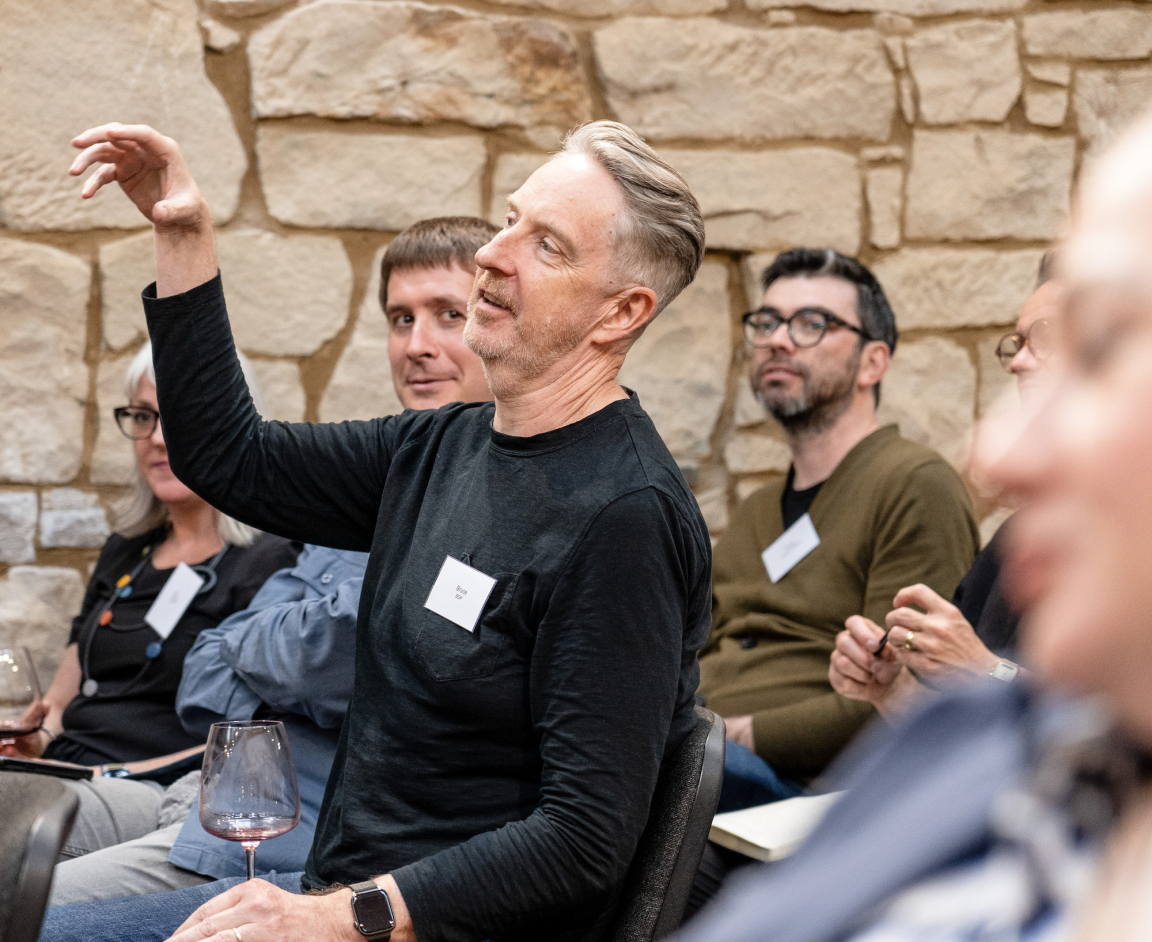
Credit: Tim Ainsworth
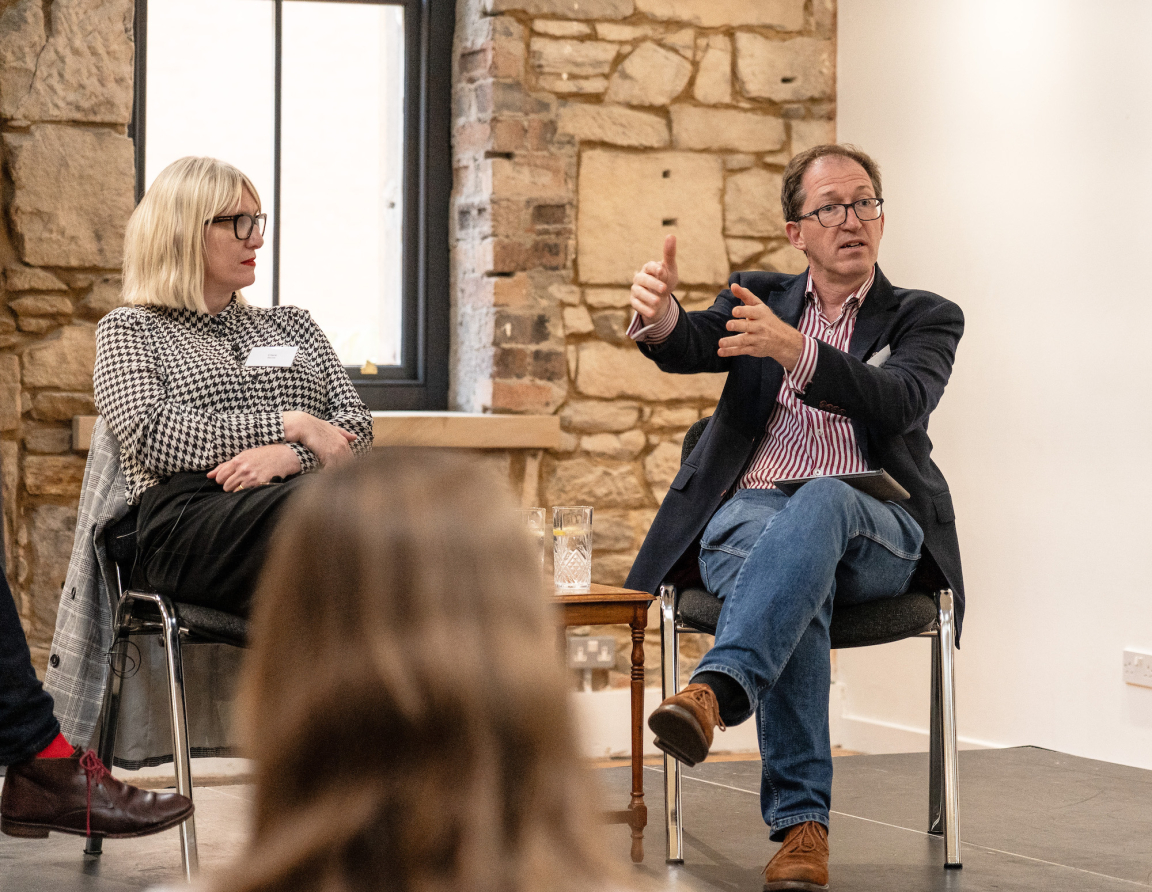
Credit: Tim Ainsworth
Widening the discussion, Clare adds: "I think there are so many great examples in other cities where they've implemented the 'S' of 'ESG' really well. Bruntwood's Circle Square is a good one in Manchester, and Wellington Place in Leeds has done it amazingly well. It's professional occupiers but they've worked with the council and created green space and a park area for the local people. Plus they've set up initiatives to help people from the surrounding neighbourhoods to get jobs. It's giving back, essentially. To local people, and to the employees too. It's about wellbeing and thinking about that wider picture. The Barclay's - in Glasgow - is another great example of a development that's breathed life into the area."
"The sense of a developer working in silo has long gone, hasn't it?", suggested David. "Oh, without a doubt", said Clare, "I always talk about the spaces between the places. Developers have to think about the public realm, it's the public and private working together. I speak a lot on affordable workspaces. In London 10% of new developments have to be affordable, and I think just putting those in, it adds to the vibrancy of the city. It attracts high level talent. It creates space where others want to be."
A question from the audience asked: "How important do you see a building's design and architecture, and its connection to the public realm, in promoting that bringing together of people for collaboration?"
Clare responded, "I was involved in The Loneliness Lab during lockdown, which was an initiative launched by Lendlease to think about how we design out loneliness within urban environments. It looked at offices and the public realm, and ways in which we can bring people together - through including strategically placed benches and making spaces that people want to sit in - and I think there are so many things we can do, we've just got to have that vision to create places that attract people."
Jamie added, "Externally, I think iconic form is something that's important for the city, the businesses in it, their employees, and the local community, as it offers a sense of pride. Knowing that it's there and what it stands for. If people from the local neighbourhood feel they are a part of it, then that's a good thing. In Cambridge, with AstraZeneca on our campus there, the village shared a huge pride in the science park as it put them on the map.
"The internal design and the way it's laid out - you're the experts, of course - but from our point of view, the role of offices and labs is very different - certainly on the lab side - it's more about spec than aesthetics - but there's a big change now, if we want to keep talent, we need to have all the best amenities. So it's not only the physical form of the tenanted space, but also the broader package that is offered is incredibly important. Nowadays, it's accepted as standard there will be a good F&B offering; different meeting rooms; cycle storage etc. It's about providing more than that.
"I also think the design of how people move through the building, and how we create 'unintended collisions' is really important. As is the design of those community spaces, the more they can be multipurpose and used for a variety of different reasons, as well as bringing in not only customers but those from the wider ecosystem."
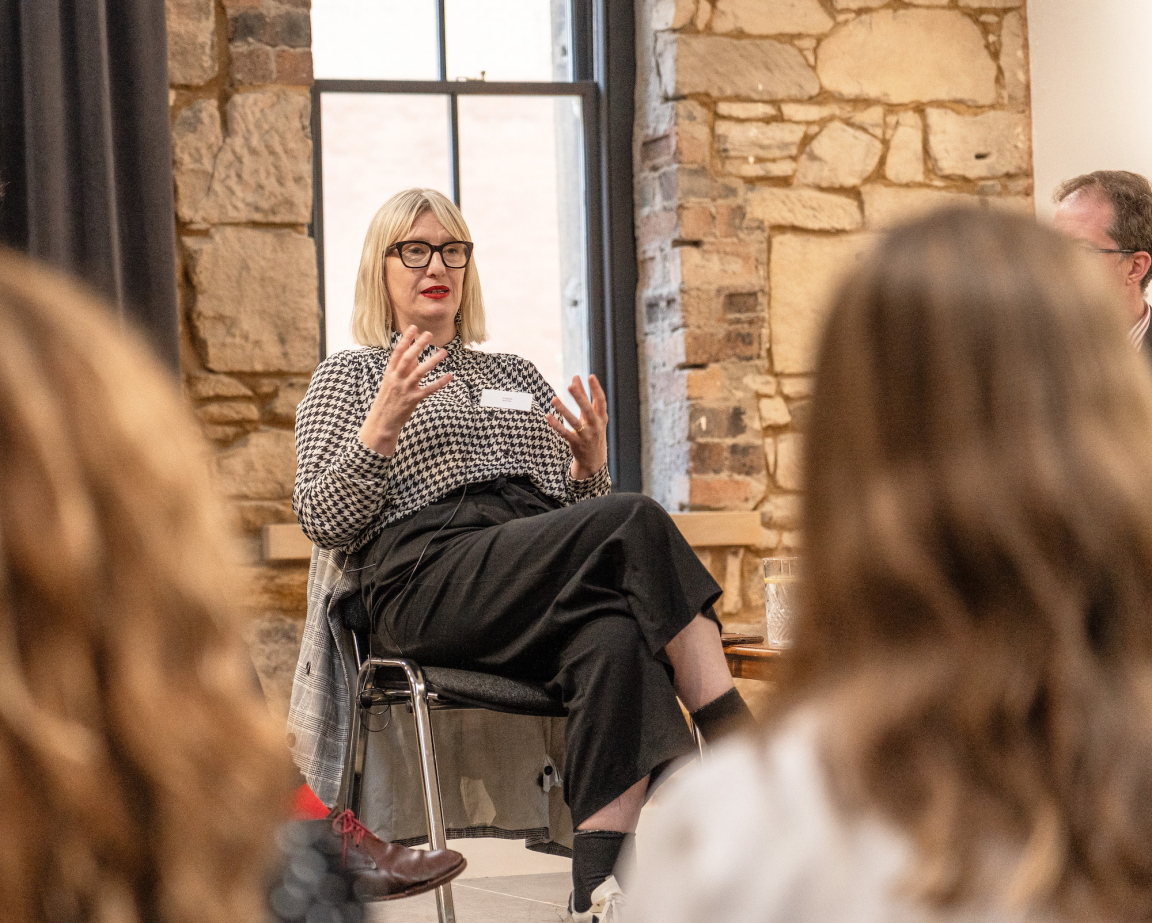
Credit: Tim Ainsworth
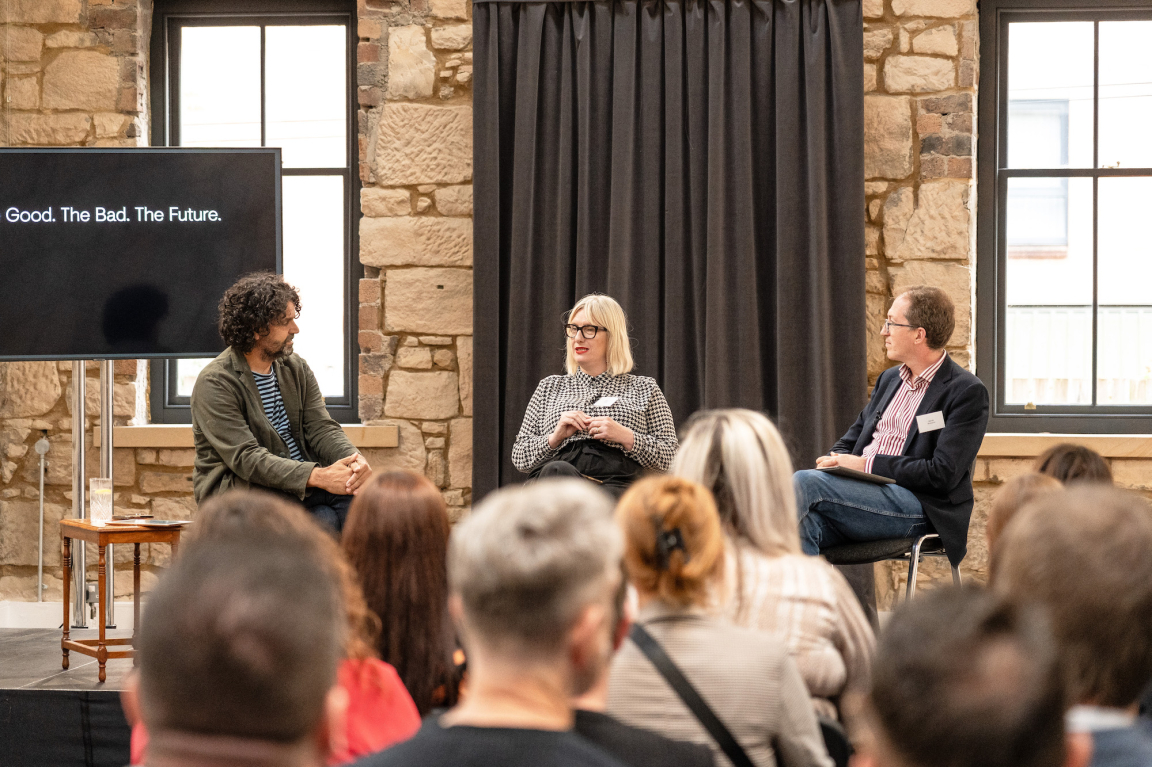
Credit: Tim Ainsworth
Moving on to retention when it comes to workspace, Clare commented:
It's not just about attracting occupiers to a building in the city, it's about keeping them when the businesses start to grow - Clare
"We keep them through offering them a mix of different spaces - there can't be anything missing on the ladder, from start-up through to corporate. There's also the infrastructure of the city to consider, including housing etc."
A member of the audience asked: "How do we make Glasgow a liveable city?"
"We've seen this in Manchester with the likes of Circle Square, where it has great amenities on-site, but you also want to come off-site and experience the same. So it provides an opportunity for retailers, and F&B to come in", responded Clare. "If you put something in an un-used area, it will spill out. And if the public and private sectors work together, an area can be made more desirable, generally."
"Integrating our campuses with the local community is so important", continued Jamie. "When we took over Alderley Park, South of Manchester, it was closed off and surrounded by high fences. Now it is not only the UK's largest single site life sciences campus, it's a mini town with a residential community, health club, gastro pub and woodland trails. In our urban campuses such as Manchester Science Park and Innovation Birmingham our central amenity buildings are open to the public. Our aim is to add to the amenities within the community rather duplicate services and take money away from local businesses."
When it comes to innovation, Glasgow is building a story - Jamie
Taking a wider geographical view, and focusing on the high street, David asked: "Which cities have successfully overcome their retail outlets disappearing?"
"Every big retailer wants to have a presence within the city now - people come to cities for experience. Here in Glasgow, Sauchiehall Street shouldn't just be about retail, it should be about other things - hospitality, public realm etc, and how it all works together", commented Clare.
An audience member pointed out that because the retail space in Glasgow used to be "so full of value, a lot of the rooms above have been cut off - the stairs have been removed - so there are now lots of empty spaces above shops, which have amazing loft interiors". He suggested that if we put those stairs back in, we could create communities, but because of planning, it doesn't tie into the way our cities are set-up.
"I like you're thinking", responded Clare. "Glasgow needs more people in its city centre. If there can be more affordable housing created; more renovation of office space to make it residential; more done with this lost space, that will bring vibrancy."
"So is Glasgow lacking in infrastructure?" asked David. The audience agreed that yes, if the city wants to retain more of its student population, for example, it needs more schools, and doctors surgeries etc. There are great links into Glasgow, and one guest suggested that to think affordable housing will be created within the city centre for families is unrealistic. So the question then remained, what is the purpose of the city centre?
To close the discussion, David asked the audience to raise their hand if they felt positive about the future of Glasgow. And the vast majority were. The final question asked, "what does Glasgow need to do to reach its full potential?"
Clare answered, "leadership." And Jamie said, "alignment between key stakeholders - private, academic, public sector, and civic organisations all working together."
Stay tuned for further discussion on this topic during our roundtable next week...
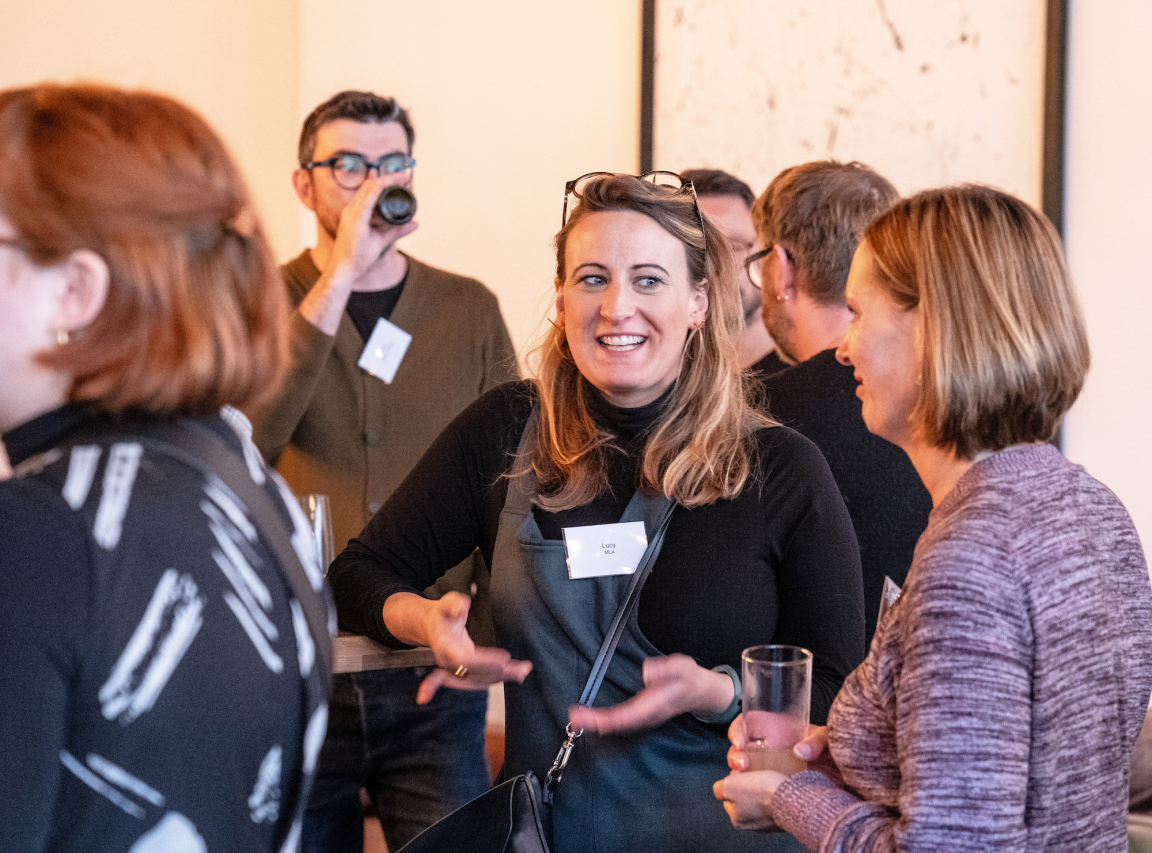
Credit: Tim Ainsworth
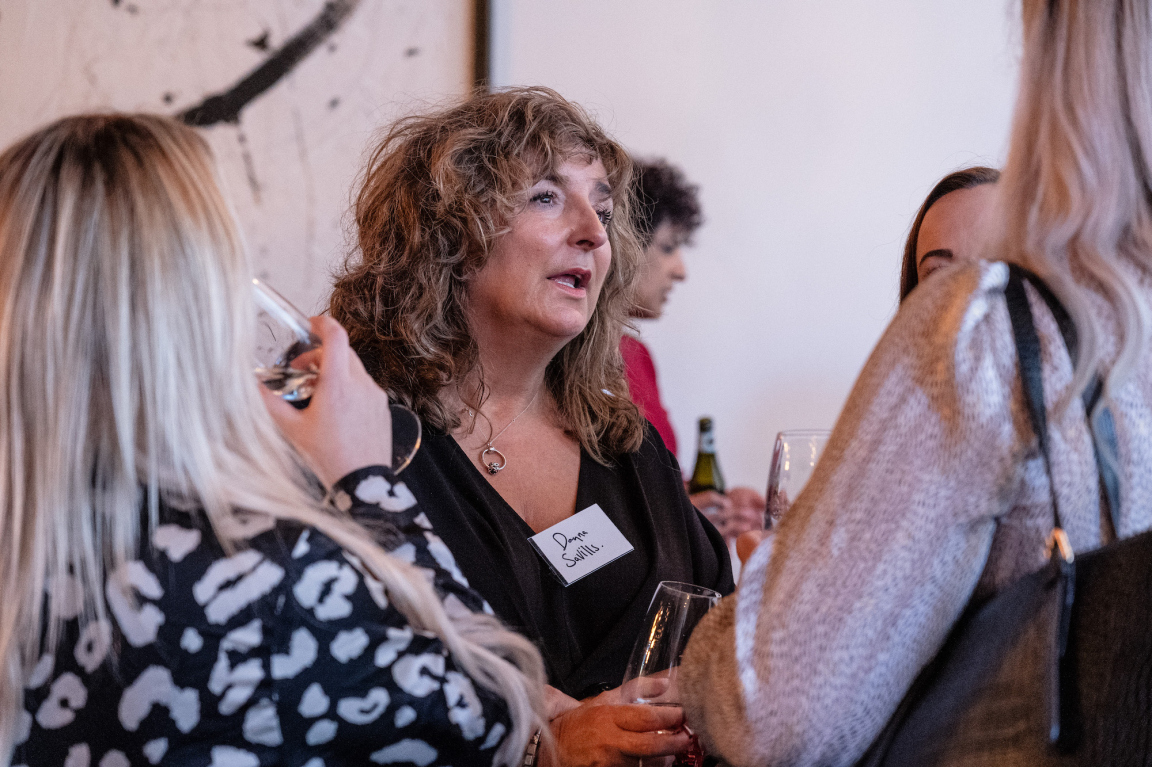
Credit: Tim Ainsworth
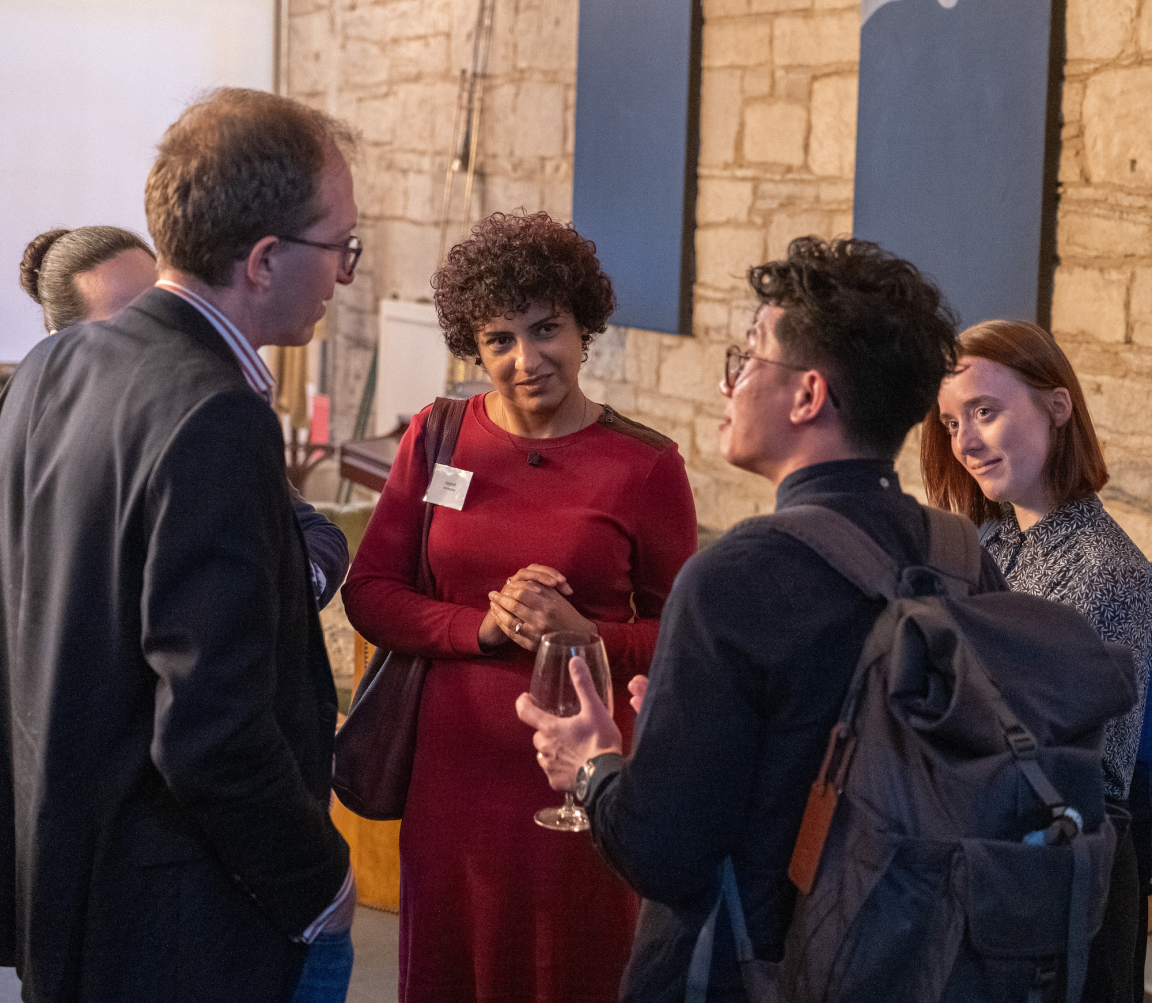
Credit: Tim Ainsworth
We'd like to say a huge thank you to our panellists and audience. Plus a special thank you to our sponsors Autex, Crown, Karndean - all partners at both Material Source Studio Manchester and Glasgow. Click here to see all our upcoming events and seminars - we look forward to welcoming you again soon.





